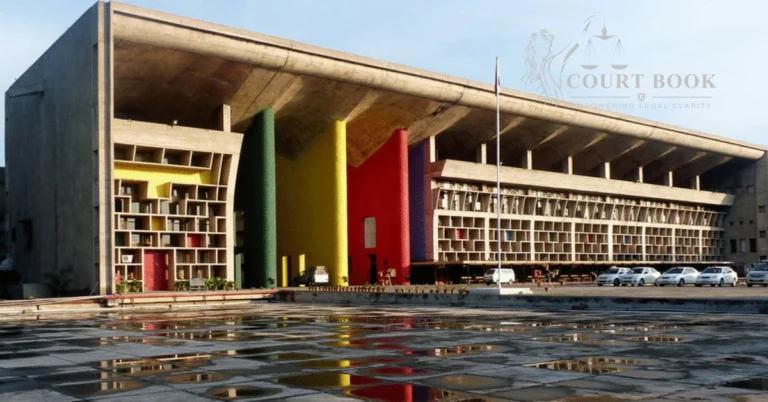The Punjab & Haryana High Court has ruled that an eviction order under the Maintenance and Welfare of Parents and Senior Citizens Act, 2007 can only be passed when a senior citizen owns the property and has transferred it to children or relatives without consideration. The court set aside a previous order that had directed the eviction of a daughter from a house on the basis of her father's claim under the Act.
Read also: Supreme Court Revokes High Court's Stay on Chandigarh Liquor Vend Allotments
Justice Harsimran Singh Sethi, while delivering the judgment, stated:
"The direction which has been given by the authorities while passing the impugned order dated 07.04.2016... is without jurisdiction and appreciating the provisions of the 2007 Act which only creates a right with the senior citizen qua the property being owned by them and has been transferred to the children or relatives without any consideration or fulfilling the essentials which are laid down under the Act."
This means that the authorities exceeded their jurisdiction in ordering eviction, as the senior citizen was not the owner of the property.
Read also: Punjab & Haryana HC: No Defamation Case Against Journalists for Reporting CM's Statement
Background of the Case
The case involved a senior citizen who filed an application under Sections 21 and 22 of the 2007 Act, seeking possession of a house from his daughter. In 2016, the District Magistrate of Chandigarh ruled in favor of the senior citizen, ordering the daughter to vacate the property. The daughter then challenged the order in the High Court, arguing that her father was not the actual owner of the house.
The senior citizen based his claim on the fact that he held a General Power of Attorney (GPA) for the house, which was originally owned by one Bilhar Singh. He argued that there was an agreement to sell in his favor, along with an irrevocable power of attorney, which he claimed gave him ownership rights.
Read also: Punjab & Haryana High Court Declares Haryana Government's Land Notification Unconstitutional
However, the daughter contended that her father was not the legal owner of the property and, therefore, the authorities had no right to issue an eviction order under the 2007 Act.
The court reviewed the legal aspects of the case and cited the recent Supreme Court decision in M.S. Ananthamurthy & Anr. vs. J. Manjula & Ors., which clarified that:
"A power of attorney and an agreement to sell, even if irrevocable, do not create ownership rights or transfer legal title in the property."
Based on this, the High Court concluded that the senior citizen was not the legal owner of the property. Furthermore, records from the Chandigarh Administration showed that the house was still registered in the name of Bilhar Singh.
The court observed that the authorities wrongly exercised their jurisdiction under the 2007 Act by assuming that the senior citizen was the rightful owner. Since the house still belonged to Bilhar Singh, the authorities should not have directed eviction under the Act.
The High Court, therefore, set aside the eviction order and held that:
"In case, the possession of the property is to be sought by the senior citizen being the holder of the power of attorney of the property in question, he has to avail the remedy under the Civil Court and not under the 2007 Act."
The Punjab & Haryana High Court clarified that the Maintenance and Welfare of Parents and Senior Citizens Act, 2007, cannot be used for eviction unless the senior citizen originally owned the property and transferred it without consideration.
Since the senior citizen in this case did not have legal ownership, he must pursue a civil suit for possession instead of seeking relief under the 2007 Act.
Petitioner No.1 in person.
Mr. Sanjiv Ghai, Addl. Standing Counsel for U.T. Chd., for respondent No.1.
Mr. Sandeep Jain, Advocate, with Mr. Davinder Kumar, Advocate and Mr. Sachin Jain, Advocate, for respondent No.2.
Mr. K.D. Sachdeva, Advocate, for respondents No. 3 and 4.
Title: Harjit Kaur and another v. Union Territory of Chandigarh and others















